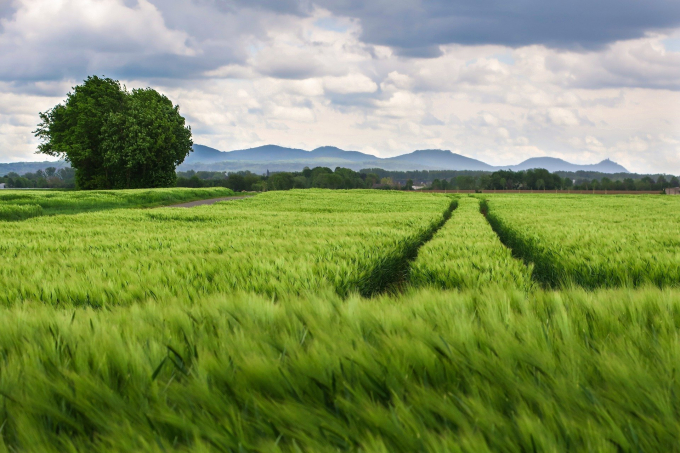October 10, 2025 | 13:57 GMT +7
October 10, 2025 | 13:57 GMT +7
Hotline: 0913.378.918
October 10, 2025 | 13:57 GMT +7
Hotline: 0913.378.918

Credit: Pixabay/CC0 Public Domain
Scientists from the U.S. Department of Energy's Argonne National Laboratory participated in a study that shows innovation in technologies and agricultural practices could reduce greenhouse gas (GHG) emissions from grain production by up to 70 percent within the next 15 years.
Published in Proceedings of the National Academy of Sciences of the United States, the study identifies a combination of readily adoptable technological innovations that can significantly reduce emissions and fit within current production systems and established grain markets.
The study, "Novel technologies for emission reduction complement conservation agriculture to achieve negative emissions from row crop production," maintains that reductions in GHG emissions could be attained through digital agriculture, crop and microbial genetics and electrification. The new technologies, when implemented, promise to drive the decarbonization of agriculture while supporting farm resilience and maintaining profitability and productivity.
Technologies were grouped across three phases: optimize, replace and redesign. The team used Argonne's GREET model to simulate adoption of the new technologies for holistic greenhouse gas emission reductions of grain production. Argonne developed GREET (the Greenhouse gases, Regulated Emissions, and Energy use in Technologies Model), a one-of-a-kind lifecycle analytical tool now used worldwide by government, industry and the science community.
The study offers insights for the development of possible new approaches for agriculture decarbonization and suggests entry points for public and private investment based on a timeline of expected returns on investments in new technologies.
"Our study emphasizes the importance of a two-pronged approach—reducing farming emissions and maximizing soil carbon storage—to addressing the climate crisis through agriculture. Practices that enhance soil carbon storage continue to gain momentum. Complementing this approach by developing and broadly applying emission reduction technologies, including seed genetics, is critical to achieving net negative production," said Dan Northrup, lead author of the study and director of special projects at Benson Hill, a St Louis based company leveraging the natural genetic diversity of plants to develop more healthy and sustainable food choices.
Argonne Energy Systems Division's senior scientist Michael Wang, who leads the Systems Assessment Center and is one of the study's principal investigators, added, "Our holistic assessment of agriculture decarbonization highlights technical areas and focus points so that U.S. agriculture will be a solution to the climate challenge."
(Phys.org)

(VAN) The people who are most vulnerable to the hard-to-breathe air that comes with climate change may inadvertently be adding to the problem, new research finds.

(VAN) Director-General QU Dongyu announces series of initiatives following global livestock conference.

(VAN) China’s freeze on U.S. soybean purchases hits a key GOP constituency in the run-up to 2026 midterm elections.

(VAN) President Xi Jinping's festive greetings ahead of the eighth Chinese Farmers' Harvest Festival, which fell on Tuesday this year, were a clear signal that China regards food security as a core strategic issue.

(VAN) BBNJ Agreement will enter into force in January.

(VAN) Demonstrations have been planned around the world this week ahead of the United Nations General Assembly and New York Climate Week.

(VAN) After years of intense deliberation, the European Commission has finally given its nod to the Mercosur and Mexico agreement.